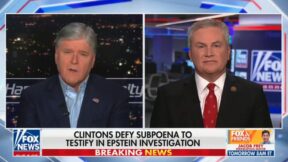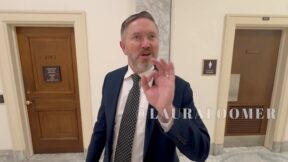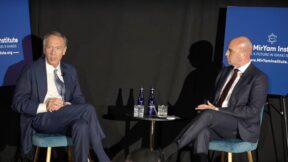‘DON’T GET BRAZEN WITH ME!’ Kyle Rittenhouse Trial Judge Erupts at Prosecutor in Fiery Legal Clash
The homicide trial for Kyle Rittenhouse took an explosive turn when the presiding judge, Bruce Schroeder, berated prosecutor Thomas Binger for the manner in which he cross-examined the teenage vigilante.
Rittenhouse faced an extensive number of questions about his actions and his line of thinking on the night of the Kenosha unrest where he fatally shot two people and injured a third.
During the trial, Schroeder repeatedly admonished Binger that he was “right on the borderline and better stop” with his questioning over Rittenhouse’s post-arrest silence, noting the defendant’s Fifth Amendment right against self-incrimination. Well-established case law has held that this right extends to prohibiting prosecutors from making any negative aspersions about a defendant’s decision to testify or not.
Later in the trial, Rittenhouse’s defense attorney, Mike Richards, called for the court to formally admonish Binger “and the next time it happens, I’ll be asking for a mistrial with prejudice.” When Binger moved to respond, he and the judge wound up in a heated back and forth over the propriety of Binger’s questions.
“Why would you think that that made it okay for you without any advance notice to bring this matter before the jury?” Schroeder yelled. “You are already — I was astonished when you began your examination by commenting on the defendant’s post-arrest silence. That’s basic law. It’s been basic law in this country for 40 years, 50 years. I have no idea why you would do something like that.”
The confrontation went on as Richards and Schroeder disputed Binger as he argued that Rittenhouse’s testimony expanded the parameters of the trial and legally exposed him to Binger’s line of questioning. Schroeder found this unconvincing and reprimanded Binger for attempting to use propensity evidence.
In layman’s terms, “propensity evidence” is past bad actions by a criminal defendant that a prosecutor attempts to use to show that the defendant has a habit of committing the crime in question (in other words, a “propensity” to commit that exact crime). It is viewed as highly prejudicial and is usually excluded from evidence.
At one point, Binger apologized and told Schroeder “I probably should’ve brought this to your attention earlier. I have misunderstood your ruling.”
I thought your ruling was if the evidence in this case made that more relevant you would admit it or at least consider its admittance. I believe, based on the evidence that we’ve heard and, more specifically, exactly what the defendant said earlier, about admitting pointing a gun at someone who’s merely jumping or sitting on a car, that the door is open now to this testimony.
The proceeding continued to spiral into a full-scale clash over the legal processes involved, with Richards denouncing the situation by exclaiming “this is ridiculous!” As Schroeder expressed that the trial protocol was in Richards’ favor, Binger interjected to once again refer back to Rittenhouse’s testimony.
“Don’t get brazen with me!” Schroeders told Binger. “You know very well that an attorney can’t go into these types of areas when the judge has already ruled without asking outside the presence of the jury to do so, so don’t give me that!”
Watch above, via CNN.





Comments
↓ Scroll down for comments ↓